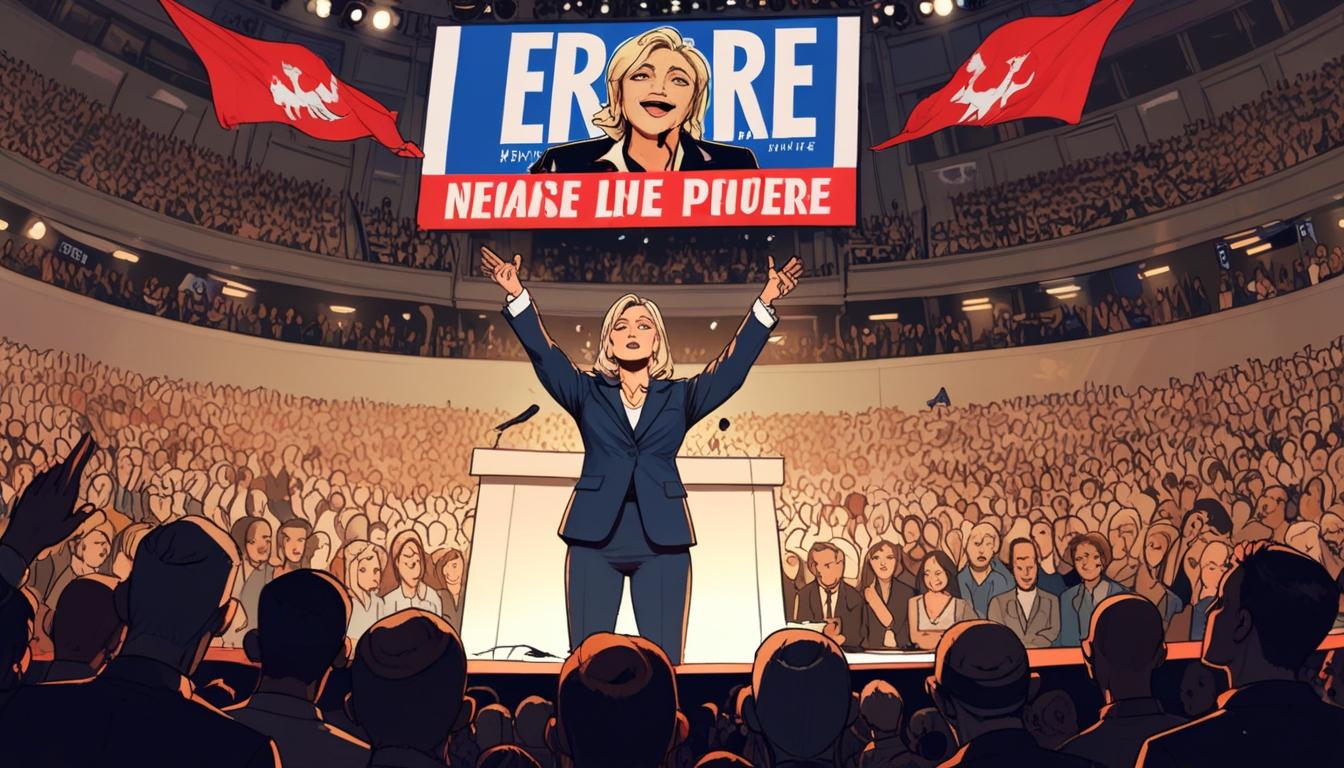Marine Le Pen, the far-right leader of France's National Rally (RN) party, rallied thousands of enthusiastic supporters in Paris on Sunday following a controversial conviction for embezzling European Parliament funds. The ruling, which bars her from holding public office for five years, has ignited a combustible political climate, highlighting the fractures within the nation's political framework.
Addressing the crowd at Place Vauban, Le Pen defiantly declared, “I will not give in,” framing her legal troubles as a politically motivated attack aimed at undermining her influence and the will of the French people. Her assertion that the judicial system is biased showcases a troubling disregard for accountability, and she attempted to position her plight as a fight "for democracy and the rule of law," despite the gravity of her legal circumstances.
The Paris court found Le Pen guilty of misappropriating approximately €4.4 million in European Parliament funds, originally designated for her staff in Brussels, to finance party employees in France. In addition to a four-year prison sentence—two years of which are suspended—she faces a hefty fine of €100,000 and an immediate ban from public office. Her legal team is gearing up for an appeal, with a potential ruling expected by summer 2026, which could allow her to enter the presidential race in 2027 if her conviction is overturned.
Le Pen characterized her conviction as part of a broader “witch-hunt,” claiming it signifies a dangerous shift toward authoritarianism in French politics. In invoking civil rights struggles, she likened her situation to that of Martin Luther King Jr., insisting that her fight remains non-violent and democratic. This rhetoric seeks to galvanize her supporters against perceived assaults on their political agency, while exposing a troubling narrative that privileges her party's ambitions over the principles of justice.
Meanwhile, opposition voices gathered in a counter-demonstration at Place de la République, where left-wing parties firmly denounced the RN and expressed grave concerns about the implications of Le Pen's legal issues. Prominent speakers, including Marine Tondelier from the Green party and Manuel Bompard from France Unbowed, emphasized that Le Pen’s actions represent a significant threat to judicial integrity in France. Tondelier stated, “This is about more than Marine Le Pen... it’s about defending the rule of law from those who manipulate justice for their own purposes.”
An estimated 7,000 attendees joined the RN rally, while roughly 5,000 participated in the counter-protest, reflecting escalating tensions between divergent political ideologies. Although the atmosphere remained largely calm, the underlying animosity reveals the growing polarization within French society.
At the RN event, Jordan Bardella voiced solidarity with Le Pen, denouncing the court's ruling as a “dark day for France,” interpreting it as a direct assault on the nation's democratic foundations. Supporters likened her legal troubles to those of a martyr, framing her situation as evidence of a broader persecution against those who challenge the political establishment.
In stark contrast, former prime minister Gabriel Attal of the centrist Renaissance party cautioned against undermining the rule of law and the integrity of political institutions. He firmly stated that respect for legal decisions must prevail, irrespective of political alignment or popularity.
As France grapples with a new political landscape, marked by significant divisions in the wake of the recent general elections, the implications of Le Pen's legal battles serve to intensify the debate surrounding justice, political integrity, and the very future of democracy in the country. The coming years promise to be riddled with contentious discussions that could redefine France's political identity and civic responsibilities.
Source: Noah Wire Services
